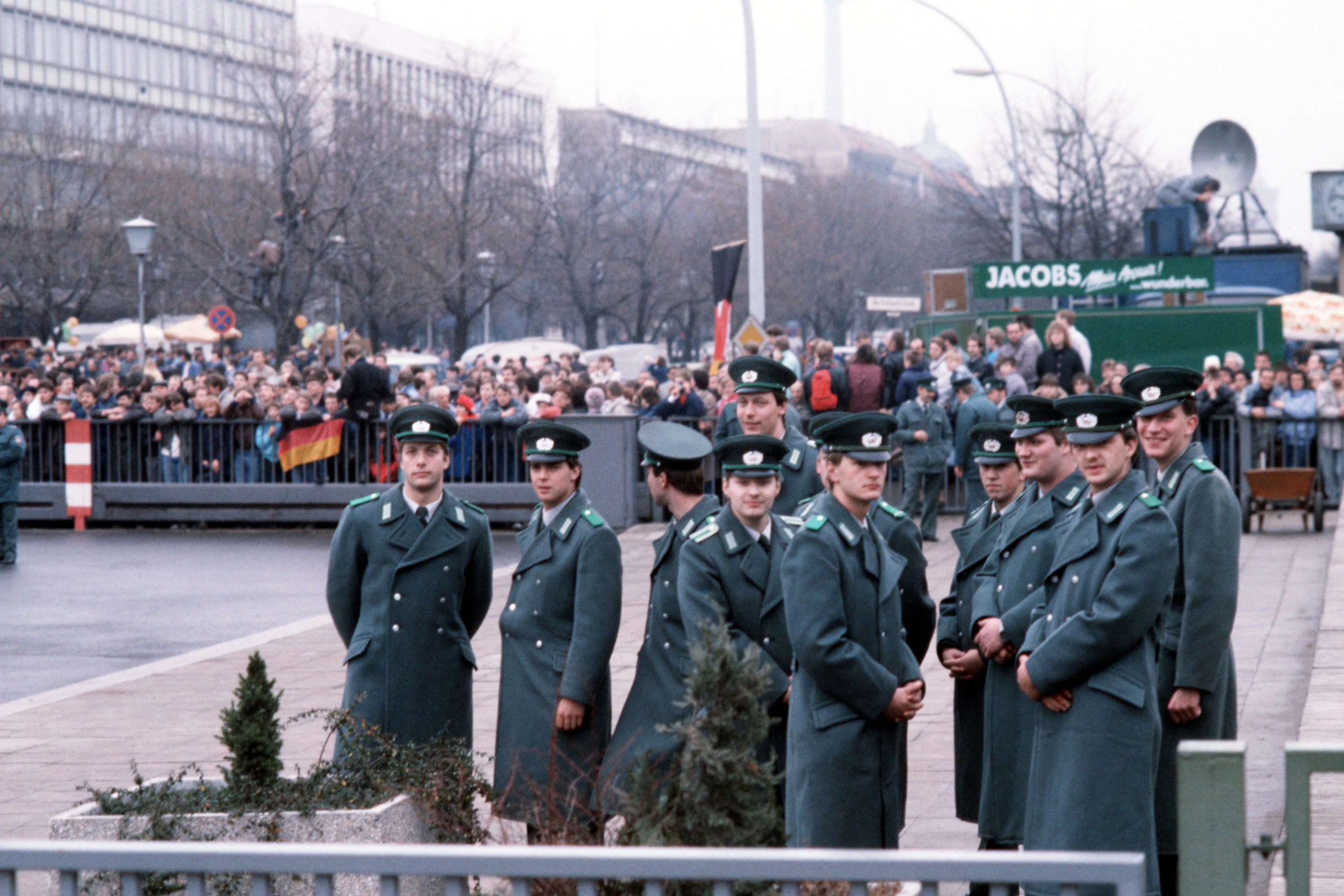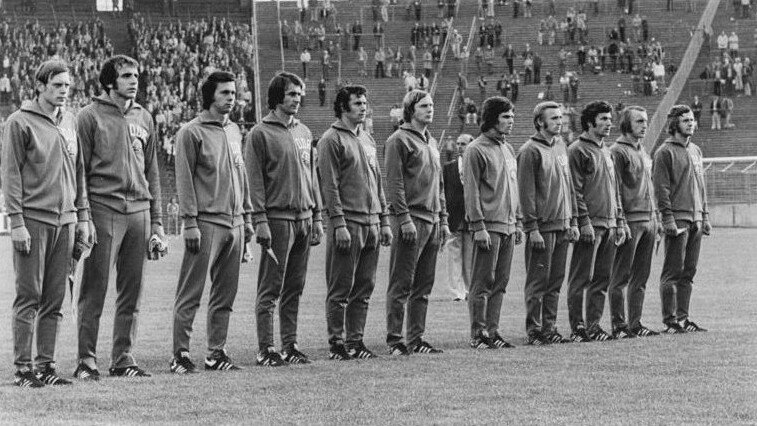|
Frank Terletzki
Frank Terletzki (born 5 August 1950) is a German football coach and former player of BFC Dynamo. Early life Frank Terletzki grew up in East Berlin. He came to football relatively lately, after his father Karlheinz had brough him to local side SG Prenlauer Berg at the age of ten. Terletzki was then allowed to join the youth academy of BFC Dynamo in 1966. His father had wanted to see him at 1. FC Union Berlin, but Terletzki went to BFC Dynamo, as that meant a shorter distance to training. His first coach at BFC Dynamo was Herbert Schoen. Schoen was described as a "tough dog" by Terletzki. Terletzki claims he learned important virtues such as discipline and toughness towards oneself from Schoen. Terletzki said: "It didn't matter to us whether it was pouring rain or snowing, we always trained." Playing career Club career Terletzki made his first appearance with the first team of BFC Dynamo in the first leg of the round of 16 of the 1969-70 FDGB-Pokal against F.C. Hansa Rostock on ... [...More Info...] [...Related Items...] OR: [Wikipedia] [Google] [Baidu] |
BFC Dynamo
Berliner Fussball Club Dynamo e. V., commonly abbreviated to BFC Dynamo () or BFC (), alternatively sometimes called Dynamo Berlin, is a German football club based in the locality of Alt-Hohenschönhausen of the borough of Lichtenberg of Berlin. BFC Dynamo was founded in 1966 from the football department of SC Dynamo Berlin and became one of the most successful clubs in East German football. The club is the record champion of East Germany with ten consecutive league championships from 1979 through 1988. BFC Dynamo competes in the fourth tier Regionalliga Nordost. The club enjoys a cross-city rivalry with 1. FC Union Berlin and a historical rivalry with SG Dynamo Dresden. The rivalry with Union Berlin is part of the Berlin derby. History Colours and crest The traditional colours of BFC Dynamo are claret and white. The colours were inherited from SC Dynamo Berlin and followed the claret colour scheme of SV Dynamo. BFC Dynamo has been playing in claret and white since its found ... [...More Info...] [...Related Items...] OR: [Wikipedia] [Google] [Baidu] |
Märkische Oderzeitung
The ''Märkische Oderzeitung'' (abbreviated: ''MOZ'') is a German regional newspaper published in Frankfurt (Oder), Germany. The circulation area of the MOZ is largely identical to the former Bezirk Frankfurt, a region with around 600,000 inhabitants. It stretches along the Polish border from the northern border of Brandenburg to Eisenhüttenstadt in the south of the state. In the west, the ''Märkische Oderzeitung'' reaches the city limits of Berlin. The twelve local editions have about 240,000 readers. The sold circulation amounts to 67.412 copies, a minus of 50 percent since 1998. The share of subscribers is traditionally high. History The ''Märkische Oderzeitung'' has been published since 17 March 1990, the day before the first free elections in the GDR took place, as an independent daily newspaper by ''Märkisches Medienhaus GmbH & Co. KG''. The ''MOZ'' emerged from the newspaper ''Neuer Tag''. This was created in 1952 in the wake of the abolition of the GDR countries '' ... [...More Info...] [...Related Items...] OR: [Wikipedia] [Google] [Baidu] |
Volkspolizei
The ''Deutsche Volkspolizei'' (DVP, German for "German People's Police"), commonly known as the ''Volkspolizei'' or VoPo, was the national police force of the German Democratic Republic (East Germany) from 1945 to 1990. The Volkspolizei was a highly- centralized agency responsible for most civilian law enforcement in East Germany, maintaining 257,500 personnel at its peak. History The ''Volkspolizei'' was effectively founded in June 1945 when the Soviet Military Administration in Germany (SVAG) established central police forces in the regions of Nazi Germany it occupied following after World War II.Thomas Lindenberger, ‘The German People's Police (1945 - 1990)’, in Hans Ehlert and Rüdiger Wenzke (ed.) ‘In the service of the party - Handbook of Armed Organs of the GDR’ (Berlin, 1998) pp. 98-100 The SVAG approved the arming of community-level police forces on 31 October 1945, but nevertheless remained a non-militarised force, and by 1946 the ''Volkspolizei'' comprised ... [...More Info...] [...Related Items...] OR: [Wikipedia] [Google] [Baidu] |
Patriotic Order Of Merit
The Patriotic Order of Merit (German: ''Vaterländischer Verdienstorden'', or VVO) was a national award granted annually in the German Democratic Republic (GDR). It was founded in 1954 and was awarded to individuals and institutions for outstanding contributions to the state and society in various areas of life. Classes * Honor clasp, in Gold * Gold, 1st class * Silver, 2nd class * Bronze, 3rd class The award The official language for the award stipulated it was given "for outstanding merit": * "in the struggle of the German and international labor movement and in the fight against fascism," * "in the establishment, consolidation and fortification of the German Democratic Republic," * "in the fight to secure peace and advance the international influence of the German Democratic Republic".Auszeichnungen in der DDR Die D ... [...More Info...] [...Related Items...] OR: [Wikipedia] [Google] [Baidu] |
Football At The 1980 Summer Olympics
The football tournament at the 1980 Summer Olympics started on 20 July and ended on 2 August. Only one event, the ''men's tournament'', was contested. Seven qualified countries did not participate joining the American-led boycott in protest of the Soviet invasion of Afghanistan. Sixteen teams were divided into four groups: *''Group A'' (USSR, Cuba, Venezuela, Zambia) *''Group B'' (Colombia, Kuwait, Nigeria, Czechoslovakia) *''Group C'' (Algeria, Spain, GDR, Syria) *''Group D'' (Costa Rica, Finland, Iraq, Yugoslavia) In the technical report following the competition, FIFA reported that: "Compared with the 1979 World Youth Tournament in Japan and the 1978 World Cup finals in Argentina, the standard of football at the Olympic Football Tournament was generally of an inferior quality,". Venues The football tournament was the most attended event on these Olympics: 1,821,624 spectators watched 32 matches of it at the stadiums. Qualification Due to the American-led boycott, count ... [...More Info...] [...Related Items...] OR: [Wikipedia] [Google] [Baidu] |
East German National Football Team
The East Germany national football team, recognized as Germany DR by FIFA, was from 1952 to 1990 the football team of East Germany, playing as one of three post-war German teams, along with Saarland and West Germany. After German reunification in 1990, the Deutscher Fußball Verband der DDR (DFV, ), and with it the East German team, joined the ''Deutscher Fußball Bund'' (DFB) and the West Germany national football team that had just won the World Cup. History In 1949, before East Germany (GDR) was founded and while regular private clubs were still banned under Soviet occupation, efforts were made to play football anyway. Helmut Schön coached selections of Saxony and the Soviet occupation zone before moving to the West. On 6 February 1951, the GDR applied for FIFA membership, which was protested against by the German Football Association, which was already a full member. FIFA accepted the GDR association (later called DFV) on 6 October 1951 as a provisional member, and on 24 Ju ... [...More Info...] [...Related Items...] OR: [Wikipedia] [Google] [Baidu] |
11 Freunde
11 Freunde (german language, German for ''11 friends'') is a monthly German sports magazine. The magazine was founded in 2000 by Reinaldo Coddou H. and Philipp Köster. Köster is also its editor-in-chief. It is published monthly in Berlin. The magazine sees itself within the tradition of English football magazines like When Saturday Comes, or the German "Der tödliche Pass". The magazine's name was inspired by a quote from a association football, football tactics book by Richard Girulatis (1920): "", which can be translated as ''if you want to win, you have to be eleven friends''. Since 2010 a jury elects the best footballing actors every year. Player, manager, coaching team, newcomer, character, referee, fan initiative of the year. History Since 2009 an enclosure for women football is made, 11 Freundinnen. Since 2010 the magazine elects the best footballing actors. Player, manager, coach, newcomer, character. Since 2017 it elects coaching team of the year, instead of coach ... [...More Info...] [...Related Items...] OR: [Wikipedia] [Google] [Baidu] |
List Of East German Football Champions
The East German football champions were the annual winners of the DDR-Oberliga. History The 1948 and 1949 East German Champions were determined in a single elimination tournament of three rounds. A nationwide football league, the DDR-Oberliga, was established for the 1949–50 season. The Oberliga was dissolved after the 1990–91 season. The 1954–55 season was a transitional season and neither was a championship awarded nor were clubs relegated. Due to the transition from a fall-spring to a spring-fall schedule starting with 1956, teams only met each other once from August to December 1955. In the 1961–62 season the DDR-Oberliga returned from a spring-fall to fall-spring schedule, the teams thus met each other three times. The third meeting was held on neutral ground. Champions The performance of various clubs is shown in the following table: Performances Performance by club ''Clubs are named by the last name they used before the German reunification.'' Notes: * ... [...More Info...] [...Related Items...] OR: [Wikipedia] [Google] [Baidu] |
Captain (association Football)
The team captain of an association football team, sometimes known as the skipper, is a team member chosen to be the on-pitch leader of the team; they are often one of the older or more experienced members of the squad, or a player that can heavily influence a game or has good leadership qualities. The team captain is usually identified by the wearing of an armband. Responsibilities The only official responsibility of a captain specified by the Laws of the Game is to participate in the coin toss prior to kick-off (for choice of ends or to have kick-off) and prior to a penalty shootout. Contrary to what is sometimes said, captains have no special authority under the Laws to challenge a decision by the referee. However, referees may talk to the captain of a side about the side's general behaviour when necessary. At an award-giving ceremony after a fixture like a cup competition final, the captain usually leads the team up to collect their medals. Any trophy won by a team will ... [...More Info...] [...Related Items...] OR: [Wikipedia] [Google] [Baidu] |
Deutscher Fußball-Verband Der DDR
The Deutscher Fußball-Verband der DDR (DFV) was from 1958 the football association of the (East) German Democratic Republic, fielding the East Germany national football team until 1990 before rejoining its counterpart, the German Football Association (DFB), which had been founded in 1900. The ''DFV'' was dissolved on 20 November 1990 in Leipzig and in its place the North East German Football Association was formed and joined the German Football Association The German Football Association (german: Deutscher Fußball-Bund ; DFB ) is the governing body of football in Germany. A founding member of both FIFA and UEFA, the DFB has jurisdiction for the German football league system and is in charge of t ... on the same day and at the same location, ''NOFV'' website, accessed: 7 April 2015 a few weeks after East Germany itself had ceased to exis ... [...More Info...] [...Related Items...] OR: [Wikipedia] [Google] [Baidu] |





